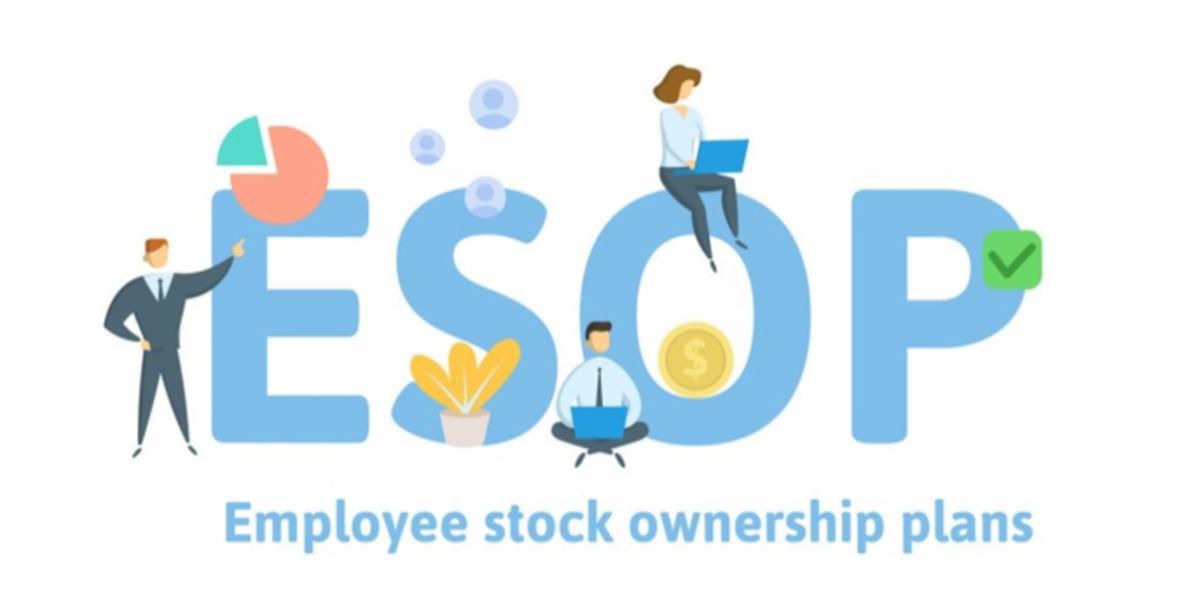An Employee Stock Ownership Plan (ESOP) is a scheme that enables employees to own a stake in the company they work for. The ownership stake is usually in the form of company stocks, and it is designed to incentivize employees and create a sense of ownership for the company’s success.
Typically, companies fund their ESOP scheme by contributing company stocks to the plan, which are then allocated to the employees. However, companies can also choose to fund their ESOP scheme by taking out an ESOP loan.
ESOP loans are financing options that companies use to finance their ESOP scheme. It involves taking out a loan using company stocks as collateral. The main aim of the loan is to finance the acquisition of additional company stocks to be allocated to employees through the ESOP scheme.
How Does an ESOP Loan Work?
An ESOP loan is a secured loan, which means that the lender (usually a bank or financial institution) uses the company’s stocks as collateral. The loan amount is determined by the value of the collateral stocks.
One of the key advantages of ESOP loans is that they are tax-deductible. The loan repayment is funded by the profits generated by the ESOP scheme, which in turn, reduces the company’s tax liability. In addition, ESOP loan repayments are made using pre-tax dollars, which further reduces the company’s tax liability.
The ESOP loan process typically involves the following steps:
- Setup: The company establishes an ESOP, which is a trust fund created to hold the company’s shares on behalf of the employees. The ESOP borrows money from a financial institution, typically a bank, to purchase shares of the company’s stock.
- Employee Contributions: The employees who wish to participate in the ESOP can choose to make voluntary contributions from their salaries towards the purchase of company shares. These contributions are usually made through payroll deductions.
- Stock Purchase: The ESOP uses borrowed funds and employee contributions to buy shares of the company’s stock. The purchased shares are allocated to individual employee accounts based on a predetermined formula, which often takes into account factors like years of service or compensation level.
- Loan Repayment: Over time, the company makes contributions to the ESOP to repay the loan taken to finance the stock purchase. These contributions may come from the company’s profits or through regular cash contributions. The ESOP uses these funds to repay the loan, reducing the outstanding balance.
- Employee Vesting: As employees accumulate shares in their accounts, they typically become vested in those shares over a period. Vesting means that employees gain full ownership rights to the shares. The vesting schedule may vary, but common time frames include three to five years.
- Employee Benefits: Once vested, employees can receive the benefits of their ESOP shares. These benefits can include dividends, capital gains from stock appreciation, or the ability to sell the shares if the company allows for such transactions.
- Exit Strategy: When an employee leaves the company, they may have the option to sell their vested ESOP shares back to the company or other employees. The terms and conditions for selling ESOP shares depend on the company’s policies and the specific provisions of the ESOP plan. ESOPs are unique employee benefits schemes that offer several benefits to both the company and its employees.
Some of the key USPs of ESOPs include:
- ESOPs incentivize employees: By providing employees with a stake in the company, ESOPs motivate employees to work harder and drive the company’s success.
- ESOPs are tax-deductible: ESOP loans are funded by pre-tax dollars, which reduces the company’s tax liability.
- ESOPs are flexible: Companies can choose to allocate stocks to employees based on their performance, position, or tenure.
- ESOPs are a succession planning tool: ESOPs can help companies transition ownership, particularly if the company’s founders want to retire or exit the business.
- ESOPs help retain top talent: Employees who participate in ESOPs are more likely to stay with the company and less likely to leave for a competitor.
Benefits of ESOP Loans
ESOP loans offer several benefits to companies that choose to fund their ESOP scheme using this financing option. The main benefits of ESOP loans are as follows:
- Reduced Cost of Capital: ESOP loans typically have lower interest rates and longer repayment periods than other funding options. This reduces the cost of capital and allows companies to invest in other areas of the business.
- Improved Liquidity: ESOP loans can help companies generate liquidity that they can use to fund their operations or expansion projects.
- Tax Benefits: As mentioned earlier, ESOP loans are tax-deductible, which reduces the company’s tax liability.
- Increased Employee Share Ownership: ESOP loans help companies acquire or repurchase company stocks that can be allocated to employees through the ESOP scheme. This, in turn, increases employee share ownership and creates a sense of ownership in the company’s success.
An ESOP loan is a suitable financing option for companies that want to fund their ESOP scheme. The unique benefits of ESOPs, such as incentivizing employees, tax deductibility, flexibility, succession planning, and employee retention, make ESOP loans an ideal financing option for companies that want to grow and create value for their shareholders.
When considering an ESOP loan, it is crucial to be aware of the interest rates associated with these loans. The ESOP loan interest rate varies depending on several factors, such as the borrower’s creditworthiness, the loan term, and prevailing market conditions. It is advisable for employees to carefully evaluate the interest rate offered by different lenders to ensure they secure a favorable loan that aligns with their financial goals and maximizes the benefits of their ESOP participation.
Before deciding to take out an ESOP loan, companies should carefully evaluate the cost of capital, liquidity needs, and tax implications of this financing option.

